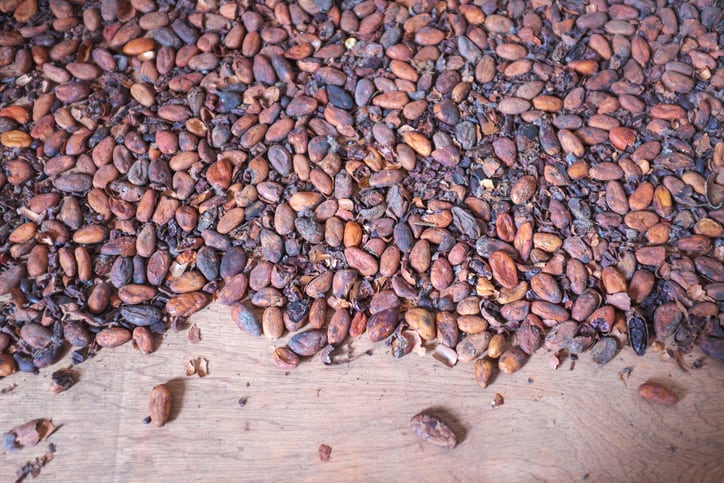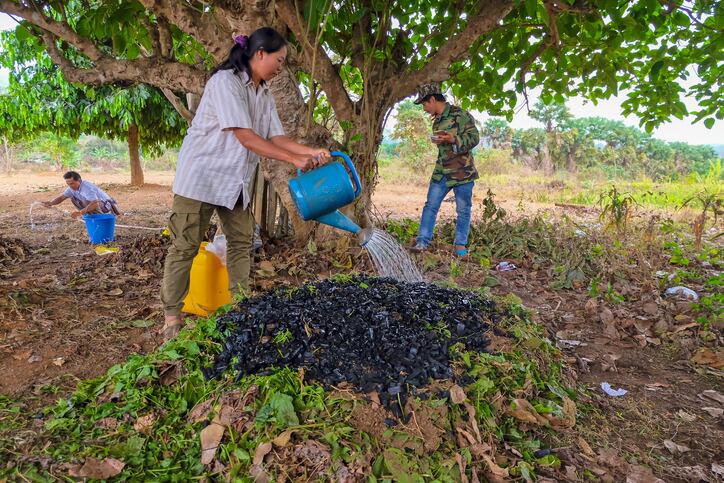The Kapatchiva cooperative cites climate change as the biggest challenge for cocoa farmers in Côte d’Ivoire, where persistent drought is compromising the harvest.
What’s behind the biochar boom?
- Soil improvement: Biochar has been linked to improved soil fertility, aeration, nutrient availability, and water retention when applied to agricultural soils, leading to increased crop yields and healthier plants.
- Carbon sequestration: The production and application of biochar to soils represents a way to sequester carbon, as the carbon in the biochar is stable and can remain in the soil for hundreds of years.
- Waste management: Biochar can be produced from agricultural and forestry waste, providing a way to repurpose what would otherwise be considered waste into a valuable soil improver.
- Environmental remediation: Biochar has the ability to filter and remove pollutants from water, air, and soil, making it a useful tool for environmental remediation.
- Economic opportunities: The growing demand for biochar has created economic opportunities in regions like India and Southeast Asia.
The potential solution is biochar – a type of charcoal that can be used to naturally enhance soil – produced by burning cocoa pod husks and limiting the exposure to air during the burning process.
Thanks to its unique chemical attributes and the way it interacts with the soil, biochar boasts versatile benefits such as improving soil health, sequestering carbon, managing waste, and providing economic opportunities.
With the global biochar market estimated to reach US$ 454.3 million by 2030, according to Emergen Research, it is therefore of interest to the agtech industry as it seeks more sustainable agricultural practice.
This interest has led to the emergence of biochar-focused startups and projects, particularly in regions like India and Southeast Asia.
One is the BIO4Africa project – an EU-funded initiative aiming to empower smallholder farmers in Côte d'Ivoire, Ghana, Senegal, and Uganda to generate new sources of income by creating value from locally available biomass and agricultural waste products.
Kapatchiva is working with BIO4Africa on a pilot project investigating the soil amendment possibilities of biochar.
Biochar made from empty cocoa pods and other agricultural waste is currently being made in a specially built pyrolysis kiln, one capable of processing materials at batch scale or continuous operation, at the INP-HB research institute in Yamoussoukro.
The cooperative says it is committed to ending the use of chemical fertilisers and pesticides, encouraging all its 3,000 farmer members to make the move to organic production. Soil amendment with biochar shows particular promise, it says.
“Because the soil is frequently dried by drought, it’s difficult for our producers to get great yields. The use of chemicals has killed the soil’s ‘friends’. With the use of bioproducts, we can bring the soil back to life and support plant growth,” said Kouassi Kouassi, president of the cooperative’s survey council.
Kouassi expects fertilisation with cocoa pod biochar will add to the positive impact – on farmer incomes as well as the soil.
“What we want is that every farmer can earn a living wage,” he says. “It’s about having enough income to pay for food, health and education and to invest in renewing the plantations.”




